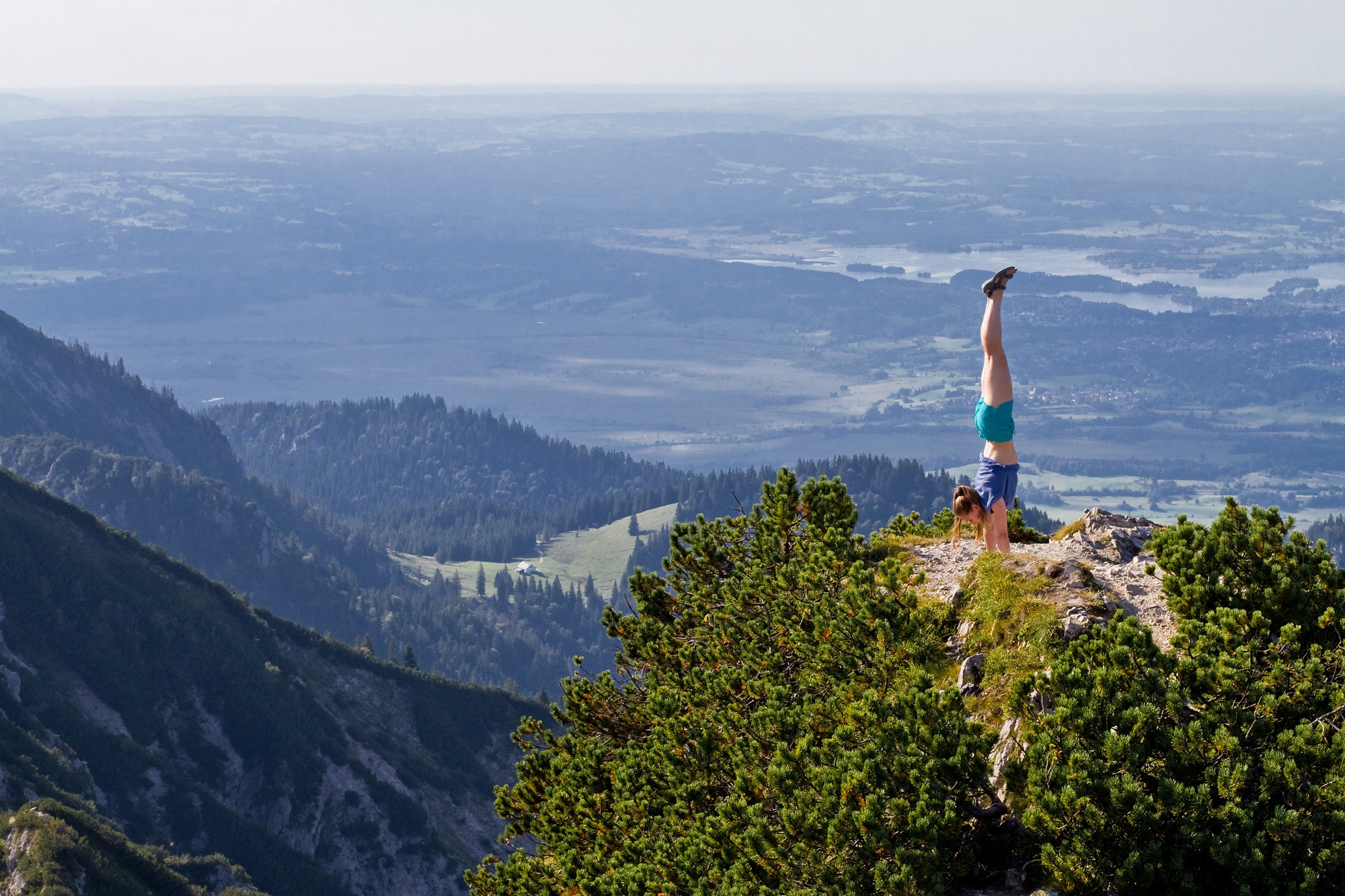Olympic games and many other sport events can not be held without volunteers. In Rio in 2016 there were around 50.000 (!) volunteers and for the winter Olympic Games in Pyeongchang more than 20.000 volunteers are required. Being a volunteer at such event is a life time experience and if you love sport, international community and volunteering, you should definitely try!
The application period starts very early (around 2 years in advance) and closes around 1,5 year before the games. I applied in November 2014 to volunteer in Rio in August 2016. The first step in the application process is rather easy: you need to fill out online form with basic questions about yourself and your motivation (you don’t have to write an essay, there are only couple of lines required – but be sure you try your best in expressing your genuine interest in volunteering).
Volunteer area
An important question to answer is your preferred volunteer role. There are many areas that require volunteers and you normally need to choose 2-3 of them. These areas include: language services, medical services, accommodation, transport, press and communications, technology, delegation support, opening and closing ceremonies, protocol, spectator support etc. You should choose the areas where you have experience and where you would like to work the most. Obviously, some areas have more demand than the others (like language services, press or delegation support) and it is harder to get selected for them. If you want to be a volunteer at the Olympics no matter what, then select as your first choice your preferred area and as the 2nd and 3rd option something that is less popular. If having an interesting role is very important for you and you only consider volunteering when doing cool stuff, then apply only for what you like. I have applied for Language Services as my first choice.
Language tests
After you submit your application you will have to do several online tests. As I have listed multiple foreign languages in my application, I had to do tests in 4 of them (English, German, Spanish and Italian.) It was a bit annoying to do all of that, but well, they have to test you =) Additionally there were some online courses that I had to take as well.
Online interview
In July 2015 I got an invitation for an online interview. For that in my account on the volunteer portal I could select a time slot that was convenient for me. What I did not expect was that interview would not be held with me alone! We were 6 people on the call and it was quite hard to hear others and to communicate. In the beginning each of us had to introduce her/himself and say a couple of words about her/his motivation. We were also asked about our favorite sport and our favorite athlete. Then there was a group task: if I remember it correctly, we had to come up with a cheerful volunteer song. That was not easy at all! We had several minutes to discuss the lyrics for our song and the melody. And then to try singing it all together and to perform it for our interviewer. That was a mess… As always there were people who were silent and did not contribute to the process and other people who were actively trying to do the task. Be sure you are the one who is actively participating! Suggest your ideas, listen to the ideas of others, keep track of the discussed proposals, summarize, keep track of time and influence the group’s dynamic. In general show your ability to solve problems and do it in a group.
In November 2015 I got an email that I was approved to be part of the volunteer team!
Role assignment
After that in December 2015 I was invited for another online meeting via Webex. This time it was a meeting with my Language Services team. There were several people again and we were told about our area and common tasks that we could expect. We were also told that if we had any preferences for particular sport, we could send them an email and they would try to allocate us to the corresponding venues (but with no promise). They particularly named artistic gymnastics as highly demanded sport, but I still applied for that =) I have emailed them naming 3 preferred sports (artistic gymnastics, basketball and tennis).
In the end of January I have received my final confirmation: I was allocated to Rio Olympic Arena! It was exactly the place where artistic gymnastics was going to be held! Yeii! I had 6 days to accept the invitation and I happily did it.
Online training
There were several courses that were waiting for me before I could start my volunteer journey. They were easy, but each one took like 45 minutes. These courses were about history of Olympic games, about Olympic values, rules, security, diversity etc. They would give you examples of different situations that you could encounter in your daily volunteer work and show you how you should manage them. In general I found it quite useful even though I had to spend like 5 hours doing the training.
After all admission formalities were solved, I bought my insanely expensive ticket to Rio in April 2016 and was looking forward to the Olympic adventure ^_^









This was very good reference for my preparation for the 2020 Olympics. Thank you!
Just to get a better idea of what the language tests were like, how hard were they? And was the purpose to see what level you were of that language, or to see if your weren’t lying about your skills on your application?
LikeLike
I am glad you found it useful! Thanks for reading 🙂
The language tests had some easy and some difficult questions, so that in the end your level could be really assessed as a beginner/intermediate/advanced based on how many questions you got right. So if your level is a beginner or intermediate you will most probably not get all the points. But if I remember it correctly the difficulty between different languages was different. So it was harder to get all the answers right in English test than it was in Italian, for example. Hope this helps!
LikeLike
This was exactly the kind of info I was looking for, thank you!
LikeLike
Hi, thanks for writing this, I just really need some information regarding general training and so on, did you write those experience too or could you explain some of training for Olympic Volunteer??
LikeLike
Hi Neni! Sorry for a late reply. The online training was rather general: history and values of Olympic Games, on-site safety, rules and code of conduct for volunteers (what you can and can not do), diversity and inclusion, as well as many examples of daily situations and what is the right way to deal with them. Most of this is common sense, but it’s good to be reminded.
In language services team in Rio I had as well one on-site training for couple of hours. There we were explained in detail what our role was and what tasks we would carry out. We were given some tips for interpretation and practiced a bit interpreting interviews (that was my future role). I can imagine that for other areas there were special trainings as well.
LikeLiked by 1 person
Hi there! Thank you for all the useful information! Some other questions, how much do you spend during the volunteering period? Will you apply for the 2020 Japan Olympic Game as well? I’m still not sure how much should I save for it. & what skills/languages do we need to have in order to get selected? I heard the competition is very high.
LikeLike
Hi Giselle! I did not spend that much during my volunteer time. As I was provided accommodation with breakfast and many times I got lunch/dinner at the venue, I was only spending occasionally some money on dinners at restaurants and a bit on drinks when going out. Transportation was provided as well, so not much spending here either. Sometimes I used Uber for sightseeing (to get quickly to some area), but again it was not much. However, for your future planning you should not count on accommodation being provided. I am going to Buenos Aires next week for Youth Olympic Games 2018 and I had to find accommodation by myself. I am paying 15USD per night for an Airbnb room. But Tokyo will be for sure more expensive than Buenos Aires, so I would count 20-35 USD per night. Olympic Volunteering program always requires you to work for at least 10 days, so I would budget at least 350USD for accommodation. But this is a very rough (and rather optimistic) estimation!!! It will depend on how much in advance you search for a place, if you manage to organise it with other volunteers, if you have a private room or a shared room. You can check prices on AirBnb/Hostels in Tokyo now, but be aware that they will definitely rise before the games. The key is to search for a place as early as possible. Transportation and meals during your shifts should be covered, so I don’t think you have to plan a lot of budget for this. The rest is really up to you – how much do you want to spend on sightseeing/restaurants/parties? I can say that volunteers during the games are busy working their shifts, so you don’t have much time to go out and to spend money. You will probably not go out every evening either as the work is tiring and you will need a good rest. In my opinion, your biggest expense after flight tickets will probably be accommodation.
As for competition to get in, yes, it’s high. Because of a huge number of applications! But to be honest, I don’t think it’s only about your qualification, it’s about your luck as well… When they have so many good applications sometimes (I have a feeling) they choose randomly. I think I am going to write a post about it 🙂 And yes, I will be applying for Tokyo 2020.
LikeLike
Quite informative writ up . thanks Uliana. i do want to apply for the 2020 Tokyo Olympics , will seek your guidance on processes . thanks
LikeLike
Thanks for stepping by! Good luck with your application 🙂
LikeLike
did the olympic committee helped you in obtaining visa to rio or you had to apply on your own or they sponsored your visa ?
LikeLike
I didn’t need visa for Brazil so I didn’t need help from the organizing committee with that. But I am sure you can apply for visa with the confirmation from the organizing committe that you were accepted as a volunteer. They wouldn’t help you with getting the visa itself but they would provide the necessary documents for that.
LikeLike